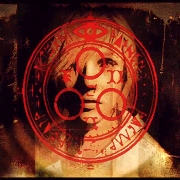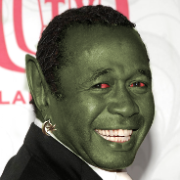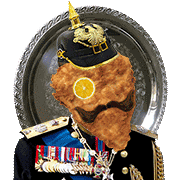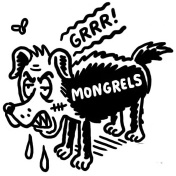|
Arbite posted:Stars in their Courses is quite good, especially if you can get the audio version. don't look on audible. i only found a lovely romance book. vyelkin posted:lmao i am not. i am gonna get the sheares one probably. military cervix posted:Considering what he goes on to say about Nathan Bedford Forrest in the very same interview, I think this is way too generous. vyelkin posted:Here are some other fun Foote quotes: ok, i am gonna say it. Foote doesn't strike me as bad exactly(he is obviously) but more pathetic, the dude seems like he is just a massive massive fanboy of the confederacy and he is smart enough to know they are the bad guys and that slavery was loving evil and the south fought for it. but he can't admit it fully. its weirder then normal lost cause assholes who just deign anything bad and such. he is basically a sad weirdo screaming Clean Wehrmacht but for the cofederacy but he got deeper and deeper and his mind rotted. its also clear he deeply admires Forrest (maybe even attracted from the way he words it) and he can't bring himself to admit it so he just tripples down forever. either way gently caress him, dude was sad loving weirdo.
|
|
|
|

|
| # ? May 17, 2024 02:56 |
|
It just happens that I finished Volume I of his trilogy yesterday. I was reading it because I was dissatisfied with how quickly McPherson went over the battles and couldn't find any other histories of similar comprehensiveness not by Bruce Catton. I couldn't detect too much explicit bias asides from him giving somewhat more space on the page to the Confederate perspective.
|
|
|
|
I like his books but his brain was rotten with a bad ideology.
|
|
|
|
I remember when James McPherson did a Reddit AMA and he was asked what he thought about Foote and he said something like, well he was a man who was never hesitant to tell a good story.
|
|
|
|
FPyat posted:It just happens that I finished Volume I of his trilogy yesterday. I was reading it because I was dissatisfied with how quickly McPherson went over the battles and couldn't find any other histories of similar comprehensiveness not by Bruce Catton. I couldn't detect too much explicit bias asides from him giving somewhat more space on the page to the Confederate perspective. Imo it sort of compounds and gets worse as the series goes on, with Vol 1 being the least egregious and Vol 3 being the worst (with the possible exception of the epilogue where there's more intellectual honesty than usual). Like, within the first few pages of Vol 1 he talks about Davis pouting because he was forced to work alongside slaves on the family plantation for three whole days as a teenager but by the end of Vol 3 he bends over backwards to act like Davis wasn't trying to flee Abbeville dressed in women's clothes and just  Generally with Foote the bias is in what he doesn't tell you. He's a good dramatist in that he uses dispatches and journals from officers and privates to give you a moment-to-moment sense of what's happening in a particular battle, and the descriptions of battles are incredibly detailed. But that's really the most I can say for him especially in light of *waves upthread* all that.
|
|
|
|
MeatwadIsGod posted:Imo it sort of compounds and gets worse as the series goes on, with Vol 1 being the least egregious and Vol 3 being the worst (with the possible exception of the epilogue where there's more intellectual honesty than usual). Like, within the first few pages of Vol 1 he talks about Davis pouting because he was forced to work alongside slaves on the family plantation for three whole days as a teenager but by the end of Vol 3 he bends over backwards to act like Davis wasn't trying to flee Abbeville dressed in women's clothes and just I assume he didn’t write them concurrently. So maybe his brain rotted along side writing the books. I mean he sounds like a US version of David Irving outside the fact that Irving was never a good historian.
|
|
|
|
Dapper_Swindler posted:I assume he didn’t write them concurrently. So maybe his brain rotted along side writing the books. I mean he sounds like a US version of David Irving outside the fact that Irving was never a good historian. Isn't Irving's The Mare's Nest considered respectable history even now?
|
|
|
|
Silver2195 posted:Isn't Irving's The Mare's Nest considered respectable history even now? i believe so. but i am sure others have expanded even more upon it. nazi rocketry/wonder weapons bullshit was never my interest outside wolfenstein and medal of honor.
|
|
|
|
Silver2195 posted:Isn't Irving's The Mare's Nest considered respectable history even now? I find Irving fascinating because he absolutely was considered a respectable historian in the 1960s. He uncovered classified stuff when writing that was still classified. It was decent in 1964. His book on Dresden is not, nor ever was, good history. He basically snuck in nazi sources uncritically.
|
|
|
|
Speaking of, god dratquote:Irving's daughter Josephine suffered from schizophrenia.[195] She was involved in a car crash in 1996 which resulted in her having to have both of her legs amputated. In September 1999, at the age of 32, she committed suicide by throwing herself out of a window of her central London flat.[196] One of the wreaths sent to her funeral contained a card which stated, "Truly a merciful death, Philipp Bouhler and friends".
|
|
|
|
Vasukhani posted:I find Irving fascinating because he absolutely was considered a respectable historian in the 1960s. He uncovered classified stuff when writing that was still classified. It was decent in 1964. His book on Dresden is not, nor ever was, good history. He basically snuck in nazi sources uncritically. i think its because of his childhood(dude grew up in a hosed up family and fell in with Oswald mosley) and just staring into the abyss uncritically for decades where he basicaly started feeling sympathetic and then supporting the nazis.
|
|
|
|
Dapper_Swindler posted:i think its because of his childhood(dude grew up in a hosed up family and fell in with Oswald mosley) and just staring into the abyss uncritically for decades where he basicaly started feeling sympathetic and then supporting the nazis. You can actually trace the development of his denialism, in Hitler' War he basically argues an extreme functionalism, he claimed that Hitler was constantly pushing back against the anti-semitism of his underlings and did not even know about the holocaust until 1943. This morphed into full "revisionism" and eventually denialism. I haven't read that poo poo but Evan's book about Irving is worth reading.
|
|
|
|
First a rec: Bloodlands by Timothy Snyder. I'm sure it's been discussed in this thread before, but it's horrific, the numbers beyond understanding, and an extremely well researched and captivating read. Second, I'm looking for a rec on the history of the Aztec civilization. Something more broadly about Mesoamerican history is fine but I'm mostly interested in the rise and fall of the Aztecs. Also anything about the development of Tenochtitlan.
|
|
|
|
Ben Nerevarine posted:
Fifth Sun: A New History of the Aztecs was fantastic.
|
|
|
|
Ben Nerevarine posted:First a rec: Bloodlands by Timothy Snyder. I'm sure it's been discussed in this thread before, but it's horrific, the numbers beyond understanding, and an extremely well researched and captivating read. Bloodlands makes some interesting arguments but I think it's colored by Snyder's undeniable dislike of Russia combined with his love of Poland. Whether imperial Russia (The Reconstruction of Nations), the USSR (Bloodlands), and post-Soviet (all of his books and public talks in the last decade) he just does not like Russia and that occasionally leads him to some odd conclusions, like saying that Stalin was actually the person responsible for WWII or that defeating Hitler would have been impossible without the Polish resistance. I'm not saying that all of Bloodlands is bad, like I said the book makes some good arguments, but there are definitely some points where Snyder's personal views come through. I think there's a reason in the last few years that he emerged as the leading scholar obsessed with Putin being Hitler 2.0 and Trump as Putin Stooge, because a lot of that was already there in his work. I think it's also why The Reconstruction of Nations is his best work, he mainly wrote it before Putin came to power (and I think focuses on an area of history that's had less attention pointed on it so stands out as something new in the historiography rather than another book on twentieth century Europe).
|
|
|
|
Chairman Capone posted:Bloodlands makes some interesting arguments but I think it's colored by Snyder's undeniable dislike of Russia combined with his love of Poland. Whether imperial Russia (The Reconstruction of Nations), the USSR (Bloodlands), and post-Soviet (all of his books and public talks in the last decade) he just does not like Russia and that occasionally leads him to some odd conclusions, like saying that Stalin was actually the person responsible for WWII or that defeating Hitler would have been impossible without the Polish resistance. My issue is he never seemed to causally link the regimes, it just comes away with the conclusion that both regimes killed people. as a reviewer wrote quote:Yet Snyder’s attempts to think about Nazi and Soviet violence together is also from the outset somewhat curious, and the events he wishes to relate Nazi violence to appear somewhat arbitrary. First, understanding the Nazi and Soviet dictatorships together is of course not in itself novel – such efforts had been a Cold War staple. Second, Bloodlands begins in the Soviet Ukraine because it was this campaign that Snyder argues ushered in ‘Europe’s era of mass killing’. Even if we were just to confine ourselves to Snyder’s designated Bloodlands this seems an unlikely claim – ignoring the violence of the Great War or the pogroms that followed it. But if we consider an extended geographical context, then it of course ignores the huge violence and population movements associated with the collapse of the multi-ethnic Empires in Europe and on its borders throughout the first part of the century. When one considers that the only thing that really links Snyder’s analysis of the Holodomor and the Holocaust is the spaces in which they (to an extent) occurred, then it becomes difficult to understand why Snyder chose this particular point of contextualisation. Or to put it another way, Snyder draws only geographical links between the two tragedies – he does not attempt to find even partially overlapping explanations or implications for them.
|
|
|
|
I think the general linkage comes from Snyder's view (which is not just in Bloodlands) that Poland was the most important country of Europe in the twentieth century and that the recreation of Poland in 1918 was the most significant event of twentieth century Europe, and that both the Nazis and Soviets came to power (at least according to him) specifically due to the destruction of Poland being not only a major political agenda but as a specific factor that caused the development of Nazism and Bolshevism as ideologies, and the Molotiv-Ribbentrop Pact as the convergence of their mutual hatred of Poland specifically. I forget if it's also in Bloodlands but in Reconstruction of Nations where he specifically says that without the Polish-Soviet War there would not be the USSR, but also Poland was the country which specifically destroyed the USSR through its late 80s/early 90s foreign policy. It also leads him to some questionable conclusions like saying anti-Semitism in 20th century Poland was entirely due to the USSR. Like I said, when you read his books with the notion that he not only absolutely loves Poland and hates Russia, but sees the former as the beacon of all good things in modern Europe and the latter as the source of all bad things, his arguments make a bit more sense.
|
|
|
|
Chairman Capone posted:It also leads him to some questionable conclusions like saying anti-Semitism in 20th century Poland was entirely due to the USSR. Wow, what a vile take. You could just as easily (and wrongly) say the same thing about Germany.
|
|
|
|
I feel like if your that deep in the tank for one country, no matter the country, your usefulness as an historian is questionable to put it lightly
|
|
|
|
CharlestheHammer posted:I feel like if your that deep in the tank for one country, no matter the country, your usefulness as an historian is questionable to put it lightly Yeah, usually this is the power of "outsider identity" in history. Take Thomas De Waal's Black Garden for example, it is the only history book I've ever seen recommended by "both sides" of an ethnic conflict (some denounce it for suggesting that their side also did bad things, but in general both see it as reasonable). He wouldn't have been able to write that and have to accepted by everyone if he had any hint of "bias" in his last name. But there is also a tendency for outsider historians to develop fetishes that are even stronger and stranger than those of people born into it. wisconsingreg fucked around with this message at 19:45 on May 24, 2021 |
|
|
|
Vasukhani posted:Yeah, usually this is the power of "outsider identity" in history. Take Thomas De Waal's Black Garden for example, it is the only history book I've ever seen recommended by "both sides" of an ethnic conflict (some denounce it for suggesting that their side also did bad things, but in general both see it as reasonable). But there is also a tendency for outsider historians to develop fetishes that are even stronger and stranger than those of people born into it. Yep. George Orwell, Notes on Nationalism posted:But for an intellectual, transference has an important function which I have already mentioned shortly in connection with Chesterton. It makes it possible for him to be much more nationalistic – more vulgar, more silly, more malignant, more dishonest – than he could ever be on behalf of his native country, or any unit of which he had real knowledge.
|
|
|
|
Hi, History Book Thread. With the recent announcement that Victoria 3 is under development I've been looking for a good book which covers the period because I plan on playing it (no Paradox game ever clicked with me before CK3) and I want to be able to appreciate Victorian alt-history at its most ridiculous. The game focuses mostly on politics, economics, and diplomacy and covers the period from 1836 to 1936, which I know is pretty arbitrary and was chosen more for the sake of the game. I'm currently enjoying Peter H. Wilson's Europe's Tragedy : A History of the Thirty Years War even though I can never keep track of the names and places, but I wouldn't want anything weightier than that. Any recommendations? edit : I think you can play as any nation in the world but I suspect Europe and the US are modelled more comprehensively so something focused on those regions would probably be best. Kalko fucked around with this message at 01:02 on May 26, 2021 |
|
|
|
Eric Hobsbawm's Age of Revolution and Age of Capital seem like they'd fit the bill. I haven't read Age of Empire but presumably it's just as excellent as the first two.
MeatwadIsGod fucked around with this message at 03:04 on May 26, 2021 |
|
|
|
MeatwadIsGod posted:Eric Hobsbawm's Age of Revolution and Age of Capital seem like they'd fit the bill. I haven't read Age of Empire but presumably it's just as excellent as the first two. Yeah I have been listening to them and they are great. It’s a bit more social history and towards the end of the period, but Barbara Tuchman’s ‘The Proud Tower’ is good too.
|
|
|
|
Pursuit of Power by Richard J Evans covers 1815-1914 and its excellent.
|
|
|
|
Thanks all for the suggestions! I'm going to go with Pursuit of Power but I'll take note of the others because I haven't actually read much from this period. I think the only books I've read that cover anything from the 1800s are Steinberg's Bismarck biography and Battle Cry of Freedom, and I'd recommend both (I know Battle Cry is a thread favourite).
|
|
|
|
Shimrra Jamaane posted:Pursuit of Power by Richard J Evans covers 1815-1914 and its excellent. +, although there was a bizarre error in my edition suggesting that the decemberist uprising happened in moscow. Also, holy poo poo, Vicky 3?! I'm never finishing this graduate program
|
|
|
|
Another excellent book covering most of the Vicky 3 era is Christopher Bayly, The Birth of the Modern World, 1780-1914.
|
|
|
|
Dreadnaught by Robert Massie has a pretty good broad overview of the later 19th C great power conflicts too and plenty of talk about big steam engines and steel production and shipping tonnage and other such Vicky things.
|
|
|
|
Chiming in to agree with the Hobsbawm, Bayly, and Evans recommendations. Amazon just released a short miniseries about the two conspiracy theorists from Borat 2 and Evans shows up in it as one of their experts, by the way.
|
|
|
|
This is a great history of the 19th century. The Transformation of the World: A Global History of the Nineteenth Century by Jürgen Osterhammel https://www.amazon.com/Transformation-World-History-Nineteenth-Century
|
|
|
|
Grand Fromage posted:Embracing Defeat for Japan. Just picked this up and am enjoying it a lot, thanks for recommending! I knew Japan treated their soldiers like garbage like with mass starvation of front line units, did not know that over a year after the war ended they weren’t sure where over a half a million overseas troops ended up. I tried searching for A Savage War on my library’s audiobook app, got a lot of michael savage garbage. I’m also recommending Battle Cry of Freedom, it helped me understand the course of the war. And has the awesome battle when nude Union troops with repeaters were popping out of a river to wreak havoc.
|
|
|
|
I’m currently reading Frank Dikotter’s series on China from 1948, it’s got me wondering if there’s a similar series that follows Russia from the revolution that anyone would recommend?
|
|
|
|
Any recommendations on the abolitionist movement in the antebellum thirteen colonies/United States? Something approachable and fairly comprehensive and not just covering the immediate pre-war years.
|
|
|
|
|
Hey y’all I’m working on a project with some friends and want to find some books on the history of folklore in the Middle East. I’ve had a little bit of a hard time because of wading through books that are about the recent history of unrest in the Middle East when I specifically want folklore and popular fiction and superstition. Material on more specific regions in the Middle East is cool too.
|
|
|
|
He doesn't have a book on it (yet) but Ali A Olomi is an historian who has a lot of writing on angels, djinn, and other religious/esoteric elements in Islam that you might want to check out. Edit: Some of the topics are also covered in Sharae Deckard's "Paradise Discourse, Imperialism, and Globalization: Exploiting Eden" For an article, Scott T. Carroll, “Solomonic Legend: The Muslims and the Great Zimbabwe,” The International Journal of African Historical Studies, Vol. 21, No. 2 (1988), 233-47 Chairman Capone fucked around with this message at 17:00 on Jun 2, 2021 |
|
|
|
Chairman Capone posted:He doesn't have a book on it (yet) but Ali A Olomi is an historian who has a lot of writing on angels, djinn, and other religious/esoteric elements in Islam that you might want to check out. This is a much better start than what I found on my first search last night. Thanks.
|
|
|
|
TheMightyBoops posted:This is a much better start than what I found on my first search last night. Thanks. No problem! If you have access to JSTOR or ILL, I can recommend a few other articles along those lines that might be useful for you.
|
|
|
|
In modern scholarship on the Vietnam War, have any writers gained much access to the Vietnamese archives, or done many interviews with the PAVN & NLF leadership from the era? The generals' perspective would be interesting but it always seems to be absent.
|
|
|
|

|
| # ? May 17, 2024 02:56 |
|
Vivian Darkbloom posted:In modern scholarship on the Vietnam War, have any writers gained much access to the Vietnamese archives, or done many interviews with the PAVN & NLF leadership from the era? The generals' perspective would be interesting but it always seems to be absent. The Vietnamese army has put out an official history of itself. The translated version of the war period is "Victory in Vietnam: The Official History of the People's Army of Vietnam, 1954-1975". It obviously has its limitations...you arent going to find much about Politboro or General Staff infighting. But if you're interested in the way the Vietnamese government views the war, there you go.
|
|
|

























